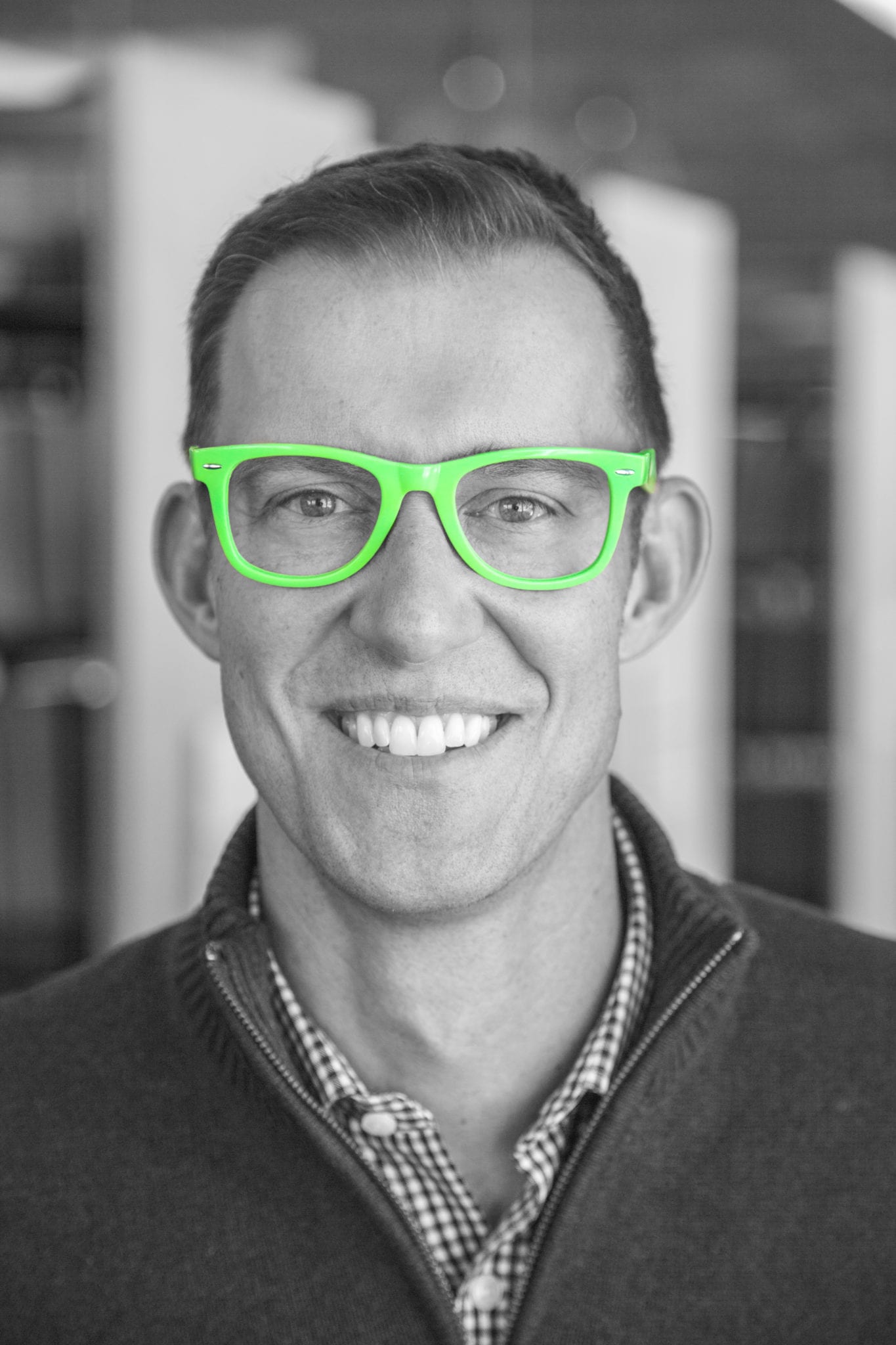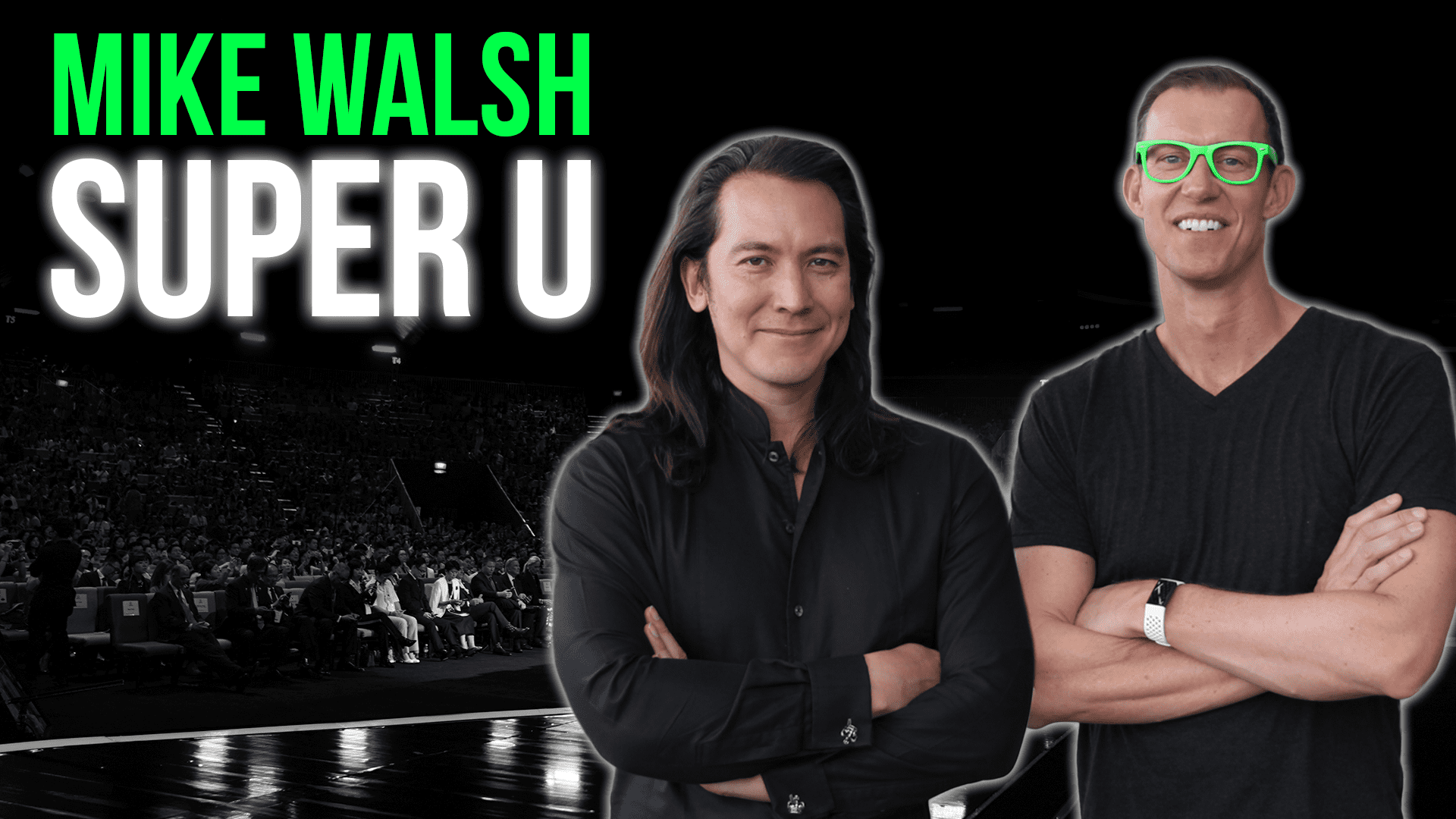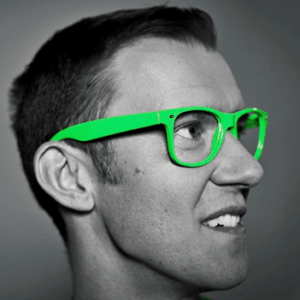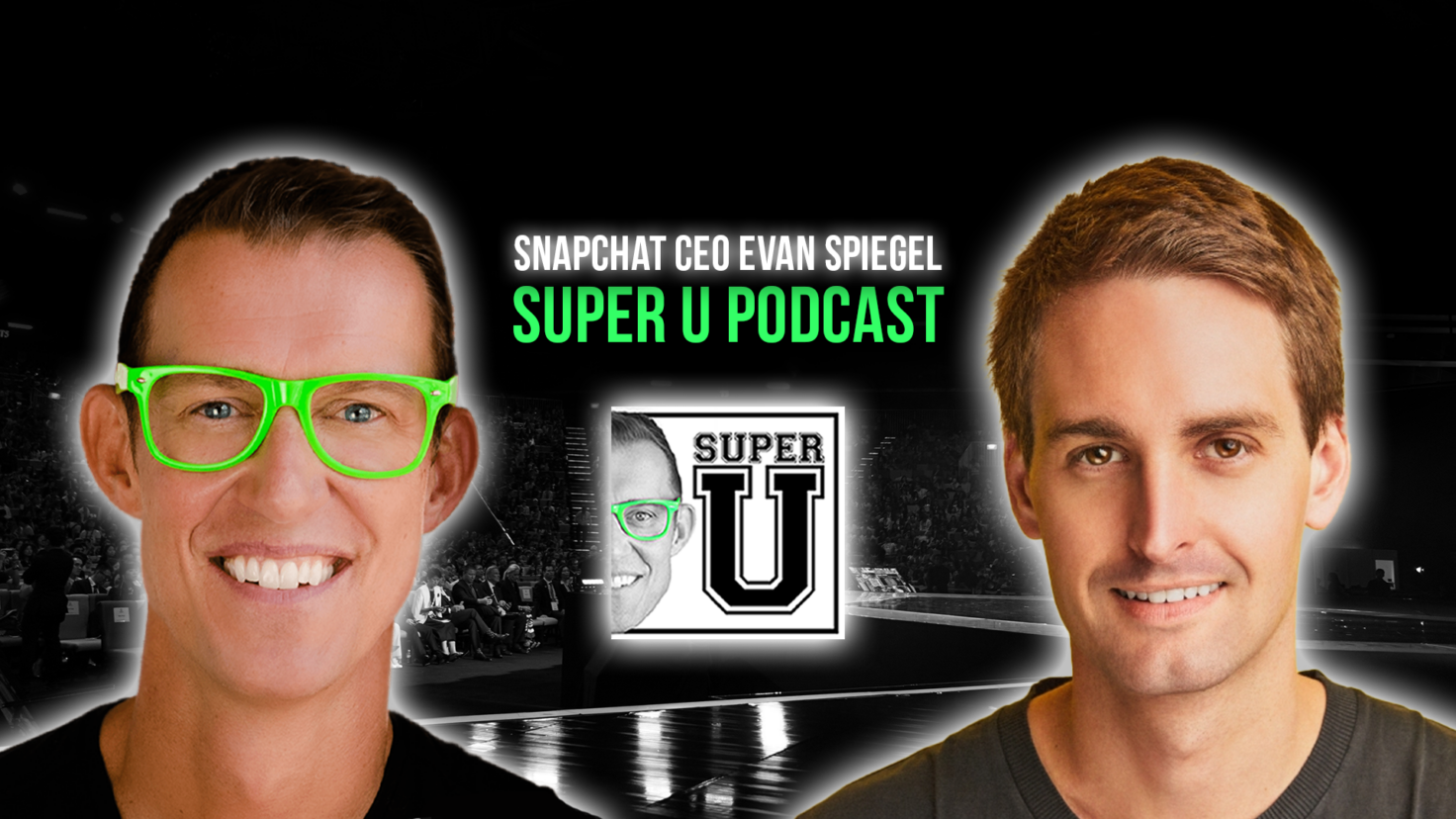Mike Walsh | Super U Podcast
Our new episode of the Super U Podcast is live! The Super U Podcast delivers curated tips from top performers and thought leaders to help unlock and unleash your inner superpower. This week’s episode features tips from Mike Walsh, futurist CEO and author who spends over 300 days of his year traveling to study and speak on disruptive technology change.
Click here to subscribe to the Super U Podcast. Need a sneak peek? Below are the main takeaways from Mike Walsh| Super U Podcast:
[0:45] Episode Intro—Welcoming Mike Walsh
Mike Walsh is the CEO of global consulting agency Tomorrow. He is a futurist who helps business leaders and Fortune 500 companies thrive in the era of disruptive technology change. He takes an anthropological approach to understand the future, “scanning the near horizon for emerging technologies and disruptive shifts in human behavior, and then translating these into pragmatic plans for digital transformation.” Walsh has given over 1K speeches in the last 10 years across the globe and has written Futuretainment and recently published Algorithmic Leader.
[1:17] What is an Algorithmic Leader?
To make it simple, becoming an algorithmic leader boils down to the book’s subtitle: How to Be Smart When Machines Are Smarter Than You. Walsh gives hopeful, practical advice in an age when people fear that robots will take over. We should be studying Gen Z instead of Millennials because this generation is where the future lies. The way they use technology, study content, and make decisions is drastically different from Millennials. For example, when Erik Qualman asks his kids to give him a minute, they say, “Okay. Alexa, set timer for one minute.” When they ask him a question he doesn’t know the answer to, they say, “Just Google it, Dad.” Gen Z has delegated their voice to Alexa and their memory to Google, and these are the things we need to study to become an algorithmic leader.
[3:52] How to Become a Global Nomad
Mike Walsh is a global nomad who travels over 300 days a year and has homes in London, Sydney, and Hong Kong. However, being a worldwide traveler is not always as glamorous as it seems. If you want to become a nomad, make sure it’s something you earnestly desire. Doing so requires constant travel, lots of logistics, and a deep understanding of travel systems and your personal health. In other words, being a global nomad is incredibly complex… but also incredibly rewarding. You lose the sense of permanency, and you no longer feel the world is made of discrete countries and cities. You develop the superpower of learning to sleep anywhere, under any circumstances.
[5:29] Developing a Global Community
The most challenging part of being a global nomad is keeping a social network. When you’re not part of a community, people stop including you in their plans. You have to be proactive to reach out, instead of raiding the minibar and watching Netflix in your hotel room alone. Keeping connections around the world is essential and helps you to develop a global community. Walsh’s most important job as a futurist is not collecting trends or doing research but talking to people. The most valuable thing he does is listening to other people’s experiences and creating curated stories from a global perspective.
[7:00] Anthropological Approach
When people think about technology, they often think of new gadgets or innovations such as 5G speed. However, these shifts don’t lead to massive transformations. Walsh takes an anthropological approach to study the future that’s based on human behavior. The future arrives in small decisions we make as human beings and the unintended consequences of those decisions. These decisions shape society, organizations, and leaders. Walsh often finds them in places he doesn’t expect such as street markets in Brazil or Mexico City.
[7:54] The Biggest Change in the Future
If Walsh had to pick one thing that will be most different by 2030, he would focus on the service industry. Sure, physical technology such as self-driving drones and cars will continue to evolve, but the service industry will change drastically. Soon, services in every industry from retail to finance to transportation will be driven by AI and algorithms whose sole purpose is to study us constantly. They will look for ways to delight us before we even ask. Retailers will send us products before we order them, and bank loans will be organized for us before we even start looking for houses. Promotions and services will be offered to us on an effortless, individual level.
[9:27] Digital Leaders
When we look at digital leaders such as Reid Hastings, Jack Ma, and Jeff Bezos, we begin to notice a common thread. That thread is their identity as algorithmic leaders as opposed to analog leaders. These leaders were not necessarily born in a different era but have made conscious decisions to do things in a new way. It requires more than learning buzz words or programming — it’s a shift in mentality.
[11:13] Inspiration for Algorithmic Leader Book
As Walsh wrote his book Algorithmic Leader, he realized he was crystalizing things he’d already thought about and taught on for years. He describes speaking as a way of “prototyping your ideas to a live audience.” You learn how to frame and phase ideas. Walsh simply put these ideas into his book. His method for writing consists of taking a couple of months off from travel. He usually spends this time at his house in Australia and uses it to exercise and eat well. He’s able to read books, think of new concepts, and curate an outline for his new books.
[13:31] Flight Tips
Walsh is pretty much an expert at sleeping on planes. He normally eats well before he hops on a flight. He views sleep like a bank account that requires regular deposits. As long as he gets 8 hours of sleep within one day’s time frame, he’s good to go. He leaves the special pillows, sleeping pills, and alcohol behind. Even though alcohol may help you fall asleep faster, it actually causes your quality of sleep to be less restful.
[15:18] Will AI Replace our Jobs?
There will always be new tools. We must learn to adapt and evolve. It wasn’t the computers themselves that took away people’s jobs. The people who learned computer knowledge took away jobs from people without that knowledge. Technology simply changes the value that human beings create and redraws the lines. Routine, transactional work is no longer done by people but by machines. We must learn how to make ourselves valuable and smart.
[16:43] Computational Learning
The way kids learn in school today is computational. We shouldn’t teach kids to remember facts when their memory is Google, or arithmetic when they have Excel. We should teach them how to approach problems. A child should learn how to look at a problem creatively and break it up into small pieces. They’ll learn how to come up with a strategy that involves technology and computation and then develop an execution for solving the problem. These are the type of skills they’ll be using in any kind of job.
[18:13] New Leaders vs. Old Leaders
Old leaders are deterministic and new leaders are probabilistic. While we are traditionally taught to be deterministic, this is the differentiating mark of a new leader. To be probabilistic, leaders must update their mental model. Teenagers tend to understand this well. They realize that the friends they have are “frienemies” because they are 70% friends and 30% enemies. Leaders need to understand that the world is no longer black and white.
Connecting with Mike
Twitter: @mikewalsh
Instagram: @mikewalsh
Book: Algorithmic Leader
Website: https://www.mike-walsh.com/
Take a look at behind-the-scenes footage on our <<Equalman YouTube Channel>>
To ensure you don’t miss future episodes, subscribe to our podcast by clicking here >> Super U Podcast. We hope these tips help unlock and unleash your inner superpower!
The Super U podcast is hosted by #1 bestselling author and motivational speaker Erik Qualman.







